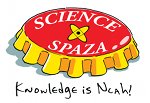Interview with Christina Meiring from Stellenbosch University's Division of Molecular Biology and Human Genetics
Why did you choose your field of study – what or who inspired you?
I have always had an interest in biology, genetics, wildlife and conservation. I grew up on a farm and was exposed to many wildlife species in different habitats. I have also always been fascinated with genetic research. When I discovered that Stellenbosch University offered a program where I could combine my interests, I knew that this would be a great journey. It’s important to know that you don’t have to know what type of scientist you want to become at eighteen years old and that there is time to figure it out. The great thing about starting with a Bachelors in Science (BSc) degree is that it’s very broad and you are exposed to so many different aspects of science. You will be able to discover your interest over time which will lead you to a specific scientific passion.
What is your research focus on?
Wild dogs are an endangered species, with only 6600 wild dogs left in the wild. They face many challenges, such as environmental changes, hunting by humans and diseases. This puts the population under pressure. In order to survive, wild dogs need help from veterinarians and conservationists to adapt to changing environments and become resistant to disease. However, not enough is known about wild dog genetics to make the best decisions that will help them; and this is where I come in. My research involves getting detailed information about genetic differences in wild dogs using whole-genome sequencing (WGS). This can tell us how similar or different their DNA is by comparing the genetic code and looking for similarities and differences. We are also investigating whether some genes within the wild dogs make them vulnerable to infection by the bacteria (Mycobacterium bovis) which causes animal TB. Animal TB can be deadly for these endangered wild dogs.
How can your research help to improve Africa and/or the lives of its people?
This research will be used to improve conservation strategies which will ultimately ensure the survival of wild dogs in the future. Wild dogs play a very important role in the ecosystem as predators, and their survival is very important for habitat biodiversity. It is very exciting and satisfying that my work can contribute to something as important as the conservation of an endangered species. In the future, I hope to research the genetics of many endangered species, allowing conservationists to make informed decisions and protect our wildlife.

This content was created in partnership with Stellenbosch University.

